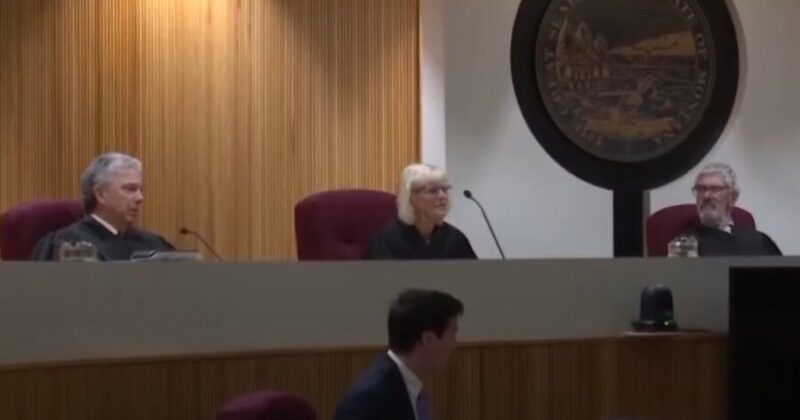On Wednesday, the Montana Supreme Court decided that a state law mandating parental consent for minors seeking abortions infringes on their right to privacy under the state constitution.
Montana’s Parental Consent for Abortion Act, enacted in 2013, has been mired in legal battles since its passage.
The law mandates that girls under 18 must secure parental consent before undergoing an abortion, although they can bypass this requirement with a judicial waiver. However, the law does not prevent minors from accessing other medical care or surgeries related to their pregnancy or child.
Justice Laurie McKinnon, authoring the majority opinion, stated that the Consent Act placed an undue burden on minors seeking abortions. She argued that this restriction infringes on “the fundamental right of a minor to control her body and destiny,” as protected by Article II, Section 10, of the Montana Constitution.
“The Consent Act, therefore, cannot be sustained against Plaintiffs’ privacy and equal protection challenges,” McKinnon wrote.
“Because a minor’s right to control her reproductive decisions is among the most fundamental of the rights she possesses,” she continued, “and because the State has failed to demonstrate a real and significant relationship between the statutory classification and the ends asserted, we hold that the Consent Act violates the Constitution of the State of Montana.”
A spokesperson for Montana Attorney General Austin Knudsen criticized the ruling, saying it demonstrated that the court was out of touch with the views of the state’s residents and described the decision as radical.
“It is ludicrous to believe that a child’s parents should not be informed before a major medical procedure and Montanans agree,” Chase Scheuer, press secretary for Knudsen, said in a statement.
“In 2012, 70 percent of Montanans supported a parental notice act, which was also challenged by Planned Parenthood and is going to trial.”
Knudsen argued that Montana has a strong interest in protecting minors from their own immaturity, asserting that they are not capable of making fully informed decisions.
The justices agreed, but said this also applies to minors who choose to carry their pregnancies to term.
McKinnon stated that minors, just like adults, have a fundamental right to privacy regarding their “procreative autonomy” and medical decisions. This right includes making choices with a selected healthcare provider without government interference.
“The Consent Act infringes upon a minor’s fundamental right to privacy because it conditions a minor’s obtaining an abortion on parental consent or obtaining a judicial waiver, something a minor choosing to carry her pregnancy to term would not have to do,” she wrote.
The decision on Wednesday doesn’t affect a separate law, also being challenged, that requires parents be notified when their underage child seeks an abortion.
Abortion has been recognized as a right under Montana’s constitution since 1999. Currently, state law permits abortions until fetal viability, usually around 24 weeks.
Share your thoughts by scrolling down to leave a comment.

